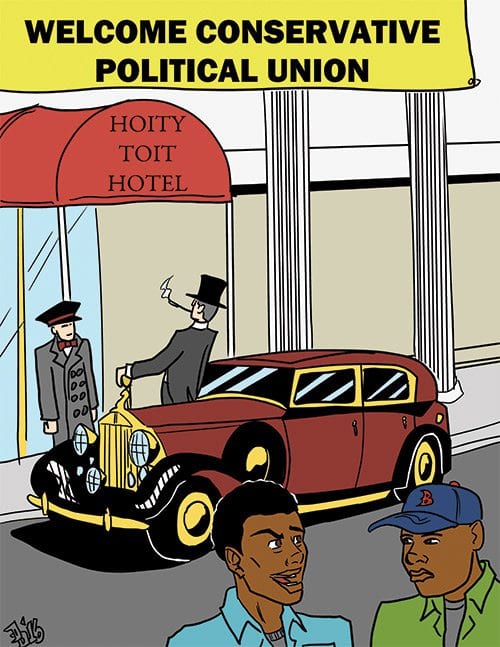
The enormous wealth disparity in America has become a major issue in the presidential campaign. Bernie Sanders has focused attention on the power of the wealthy to buy elections. The bedrock of his campaign is that a large number of small contributions from the average citizen will offset the huge contributions from a small number of the wealthy. He asserts that the billionaires will then no longer be able to buy politicians who would oppress the financially limited. The record since the Supreme Court approved the Citizens United case in 2010 indicates that Sanders is right.
Prior to Citizens United there were legal restrictions against corporate contributions to political campaigns. In a 5-4 decision, the court retained the limit of $5,200 to a candidate but opened the door to unlimited contributions by corporations and others to political action committees — PACs. In the five years since Citizens United, super PACs have spent over $1 billion in federal elections.
The fear of the progressives is that the enormous contributions from the wealthy will induce members of Congress to support programs to stifle the financial progress of the average citizen. The prospect is disturbing when one considers a report from the Brennan Center for Justice that 60 percent of the PACs’ funds spent in federal elections since 2010 came from only 195 individuals and their spouses.
Another aspect of the change in the law is that it has become easier for foreign citizens and corporations to influence the outcome of U.S. elections with campaign contributions. According to the law, only American citizens and immigrants with green cards can contribute to federal politics. The Foreign Agent Registration Act (FARA) also places severe restrictions on lobbyists for foreign corporations. Now with Citizens United it is much easier to circumvent these restrictions.
American corporations with a substantial number of foreign stockholders can simply contribute to PACs directly. Foreign corporations with U.S. branches can have their employees who are U.S. citizens contribute. It is estimated that $7.8 million has been contributed to foreign-connected PACs during the present election cycle. Employees of foreign corporations who are U.S. citizens would not be subject to the same FARA provisions as lobbyists.
A major political objective of all this maneuvering is to depress any increases in the tax rate. Conservatives in the U.S. and other industrialized nations dread taxes to finance the entitlements for citizens with modest incomes.
The journalistic exposé of the leaked so-called Panama Papers details the establishment of offshore accounts for the wealthy and the politically powerful from around the world. They deposit their financial assets in what are considered to be safe sovereign nations. The objective is to protect their wealth from taxation and appropriation by government policies considered to be abusive. The news media characterized the discovery as a massive international tax avoidance scheme.
The super-rich will clearly do whatever is necessary to preserve their wealth. If, as Sanders asserts, social change only comes from the bottom up, then those with limited income will have to donate even modest sums to political candidates who are committed to ending America’s crippling wealth disparity.






